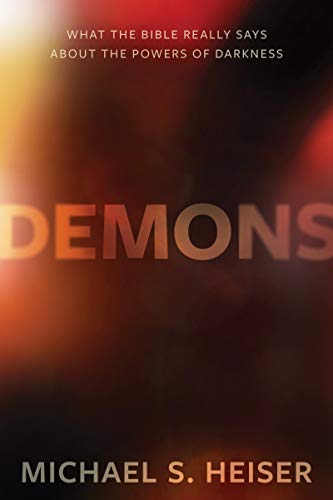BEN: A lot of your studies involve comparative etymologies from ANE languages like Ugaritic etc. I remember G.E. Wright (yes I’m old, and I ended up with some of his library which went on sale at a bookshop on Cape Cod after he died) writing a book on how the ancient Hebrews were not a myth-making people, rather they demythologized other people’s myths. The point about Hebrew words is, that the Hebrews were creative with loan words, and they morphed into something more in line with monotheism in the hands of the Biblical writers. And, of course there are many scholars very leery of committing the etymological fallacy—i.e. seeing the idea of a Biblical devil with a tail and horns coming from ANE remarks about some pagan deity. And as you say, the Bible says nothing about such an image for Satan anyway. How do you adjudicate issues of word origins etc. and what do you think about Wright’s basic view of demythologizing?
MICHAEL: Words are inevitably used to communicate ideas; they are not the ideas themselves. They are a means to an end. The best illustration for me here is elohim. That word does not communicate the unique ontology of the God of Israel. A specific set of unique attributes does not derive from the Hebrew consonants that make up elohim. That word is more neutral than that. But we in the West have imbibed that false assumption, and so we errantly think that plural elohim overturns the idea of monotheism (a term by which we mean an ontologically unique deity). You can only get to ontological uniqueness by the way the God of the Bible is described (using lots of other words) and by the fact that those descriptions (e.g., eternality, creatorship, omnipotence) are denied to other elohim. So when a biblical writer uses a word that may have a long history in other languages, or is a sure cognate to some word in other languages, it has utility and brings with it a semantic range already in place as it were. But that doesn’t mean that biblical writers won’t introduce other ideas / words to talk about the thing they’re talking about using a cognate word to make their own beliefs apparent and distinct. I think the biblical writers are busy with the task of theological messaging. Doing that requires using words that were comprehensible to their own readers, not necessarily us. Their readers would have some knowledge of vocabulary overlap through normal human discourse – trade, commerce, conflict, etc. Their vocabulary choices will communicate, but communication isn’t about just knowing the words in a lexicon, even if it’s your own. Words get used in a variety of ways and are accompanied by other words, other contexts, storytelling, etc. Meaning isn’t just about knowing glosses or “word exchanges.”













